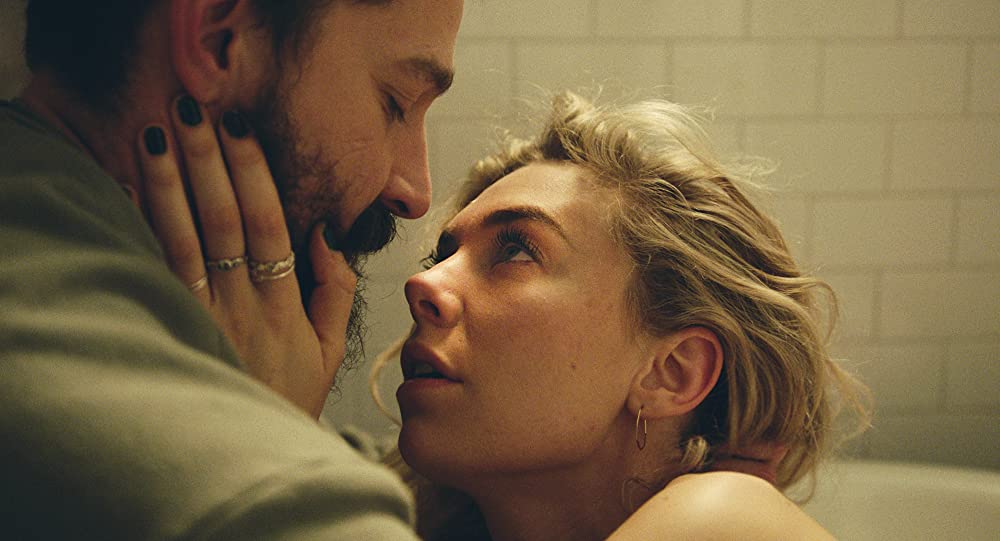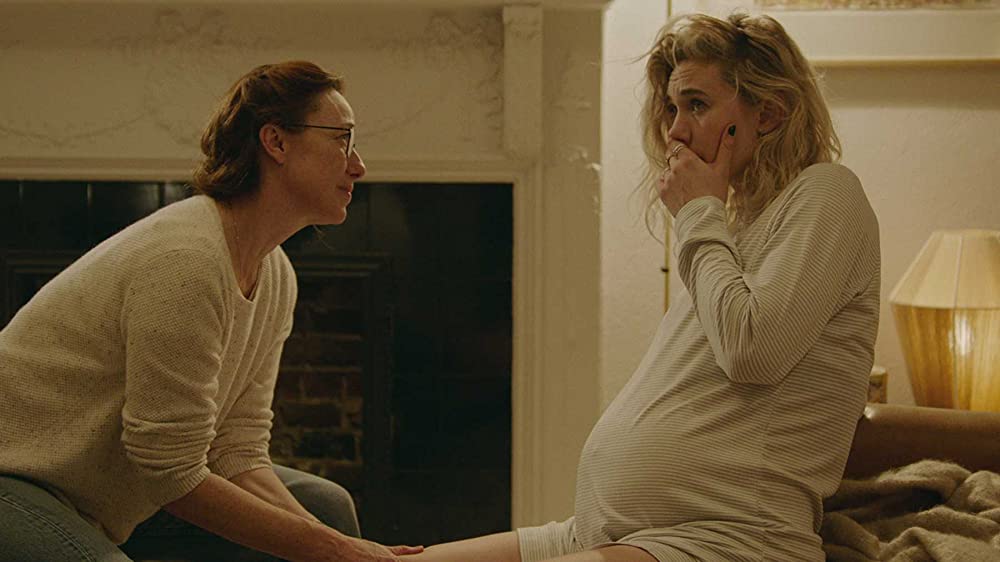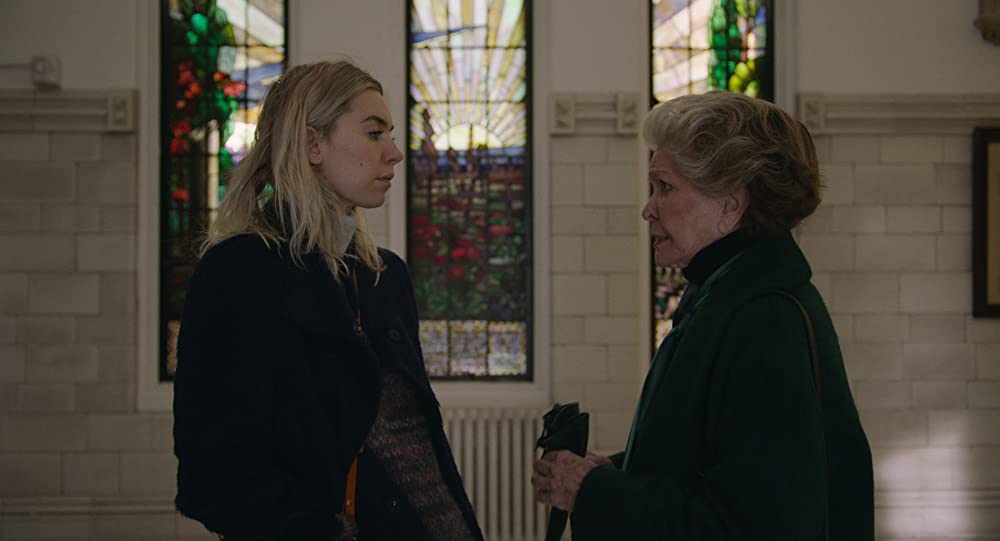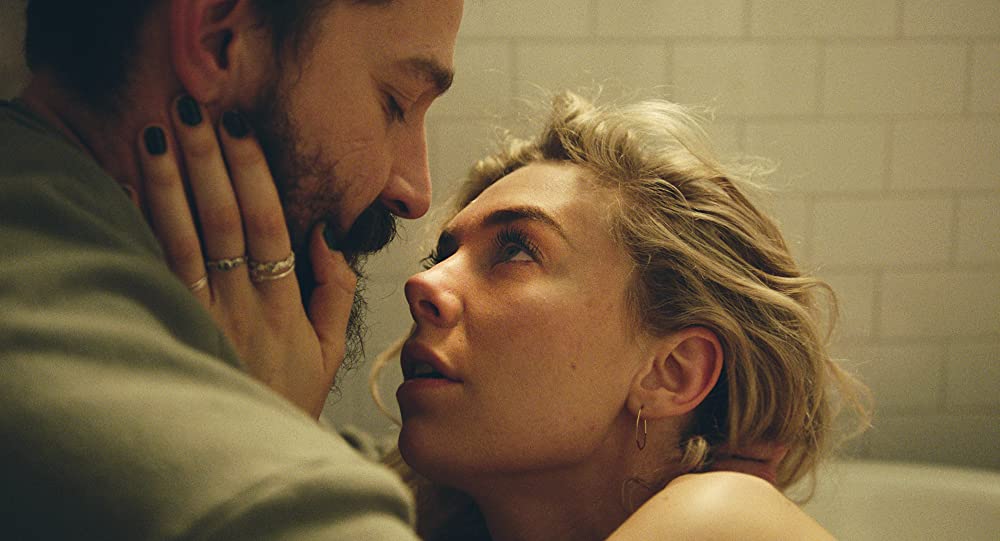By Ellie Spenceley, Second Year, English Literature
Kornél Mundruczó’s emotionally arduous film Pieces of a Woman (2021) takes on the difficult task of doing justice to the unfathomable devastation of losing a child shortly after birth.
Vanessa Kirby, who plays the leading role of Martha, provides us with an absolutely stunning and harrowing presentation of loss, emptiness, isolation and insurmountable grief, her embodiment of her role allowing us to attempt at processing what even those who have experienced cannot ever fully process.

The first 30 minutes of the film are the most resonant, with a seamless one-shot taking us through from Martha’s homebirth from first contractions right up until her and partner Sean (Shia LaBeouf) are forced to look death in the eye as their daughter fails to cling on to her first few minutes of life. The most painful scenes are therefore presented to us before the title scene is even displayed, upon which you find yourself letting out a breath you did not even know you were holding.
It is intimate and raw, with the acting: direction and dialogue enveloping you in the essentialism of birth and death shown in the couple’s home environment that from that moment finds itself forever haunted.
Pain and its often-unrewarded reality find themselves to be a running motif – from Martha’s experience of a gruelling childbirth resulting in nothing but loss, to the court scene later in the film where we see the midwife, Eve Woodward (Molly Parker), being trialled for negligence, misconduct, and manslaughter. Tragedy is often blameless, and it is this stinging truth that prompts Martha to acquit her midwife of imprisonment, saying that she ‘did not intentionally harm [her] girl’. How can she give her pain to someone else; she asks? Whilst her pain is heavy and whilst she will find it impossible to ever fully let go of, what good does it do to pass it on?

When Martha makes the decision to donate her baby’s body to medical research, Sean expresses rage, throwing the plastic birthing ball right at her face, which she later burns with a cigarette stub.
Martha’s isolation as a result of her tragedy is emphasised throughout, as we see the aftermath through her eyes. Whilst the symbolism of death is often obtuse – dying plants, chrysanthemums, a graveyard stroll, forced intimacy on a bed turned deathbed – it does make the matter at hand impossible to avoid, refusing to make what is an obtuse matter acute for the sake of cinematic minimalism.
Witnessing Martha questioned on the stand about her childbirth experience is uncomfortable to watch, with Vanessa Kirby’s powerful performance echoing our current political climate and its obsession with the publicisation of the traumas of womanhood in the name of justice. Herself and Ellen Burstyn, who plays the role of Elizabeth, Martha’s mother, both give incredibly charged monologues that speak to the intergenerational trauma that comes with existing as a woman in society with pain that must be endured, irrespective of how heavy it may be.

Given the recent domestic abuse lawsuit filed against Shia LaBeouf by FKA Twigs, there is a level of irony here, with the viewer being presented with the Barthesian dilemma of whether to enjoy and applaud LaBeouf’s performance despite his accused behaviour. ‘Penny for your thoughts?’ Sean asks a silent Martha. Silent she may be, aligning with the physical world that is cold and quiet throughout, inside she is burning with questions she will never be able to answer; pain she will never be able to dislocate.
Pieces of a Woman is ambitious in its attempts to explore the idea of what grief does to a person and their relationships, and how they can view it in the grand scheme of life. A film exploring such a sensitive and personal matter is difficult to reflect upon in earnest without doing some sort of injustice to those who have experienced such pain, especially given the fact that it is no doubt a trauma ingested differently by all.
Bridgerton is a beautiful, but shallow, feast for the eyes
Epigram's Top 25 Films of 2020
Despite this, the poetically impactful final act, incorporating fruitful metaphors from throughout the film and using dandelions as a symbol of delicacy and natural impermanence, seems to provide a somewhat hopeful and uplifting denouement with which we are reminded that life goes on, and that things come and go which we have no true control over.
Featured: Benjamin Loeb / Netflix
Will you be watching Pieces of a Woman?







